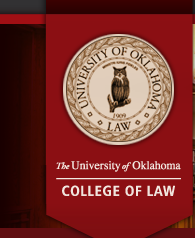Document Type
Article
Publication Date
2022
Publication Title
University of Dayton Law Review
Abstract
Professor Mark Jones has argued that legal education needs to be “reliberalized” by returning to a state in which “all law students receive a basic minimum exposure to the general subject areas of legal history, jurisprudence, and comparative law, as well as to the general subject areas of international/trans-national/global legal studies . . . .” Jones’s call to restore the cultural dimensions has recently received an additional source of strength. The recent publication of an English translation of Dr. Valentin Tomberg’s doctoral dissertation for the first time, under the title The Art of the Good: The Regeneration of Fallen Jurisprudence, provides additional arguments for what is needed to restore legal education. At the conclusion of a thorough yet concise assessment of jurisprudence (its history and decline as well as Tomberg’s plan for restoring it), he outlines a plan for the reform of legal education that would be necessary to restore jurisprudence. This plan coincides in many aspects with what Jones defines as the cultural dimensions of law. Tomberg brought a unique and interesting perspective to the topic. He lived under Czarist Russia, the Communist Union of Socialist Republics, and Nazi Germany. When he speaks of the degeneration of law, he speaks from the experience of one having seen it first-hand in communist and fascist totalitarian regimes. He witnessed lawyers, who had been prepared for the profession without the type of education he advocates, become instruments of totalitarian power and oppression. His insights provide a fresh perspective on the shortcomings of legal education today and a clear plan to restore it that coincides with both the long history of legal education and Professor Jones’s recent call to “reliberalize” legal education. Part I of this article will briefly summarize the history of legal education from the ancient world with attention paid to its scope and depth in the cultural dimensions of law. Jones has situated his proposals within the context of a detailed history of legal education in America. Part I also will expand that context backward in time. Part II will then introduce Tomberg’s assessment of the decline of jurisprudence and the proposals he developed over seventy years ago for its reform. It is not possible to understand Tomberg’s proposals for legal education without at least summarizing his critique of jurisprudence. Part III will apply the principles of Tomberg’s recommendations to the current state of legal education in America. Examining Tomberg’s work will unveil the causes of the narrowing of legal education that Mark Jones documents and that afflicts modern jurisprudence, and as a result legal education.
Volume
48
First Page
1
Recommended Citation
Brian M. McCall, Beyond The Narrow Harvard Model Of Legal Education: Restoring Legal Education According To The Proposals Of Valentin Tomberg, 48 U. Dayton L. Rev. 1 (2022).
Included in
Law and Philosophy Commons, Law and Society Commons, Legal Education Commons, Natural Law Commons
